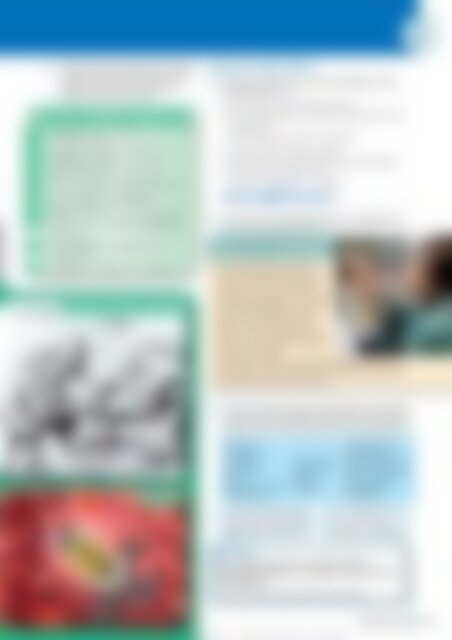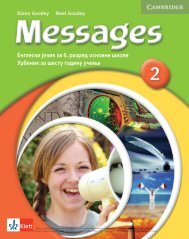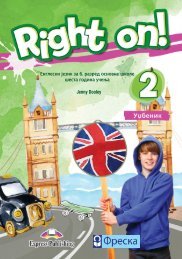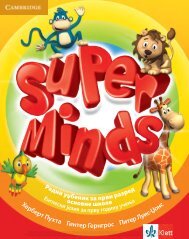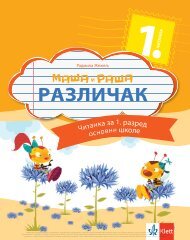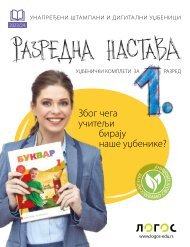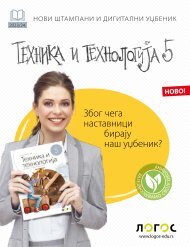Енглески језик 8, уџбеник, старо издање, Нови Логос
- No tags were found...
You also want an ePaper? Increase the reach of your titles
YUMPU automatically turns print PDFs into web optimized ePapers that Google loves.
3<br />
3 Choose the correct words in the Top ten<br />
medical advances. Which do you think<br />
are the most and least important?<br />
Which are the most recent?<br />
Top ten medical advances<br />
1 A suffering / cure for malaria<br />
2 The cause / discovery of antibiotics<br />
3 Developing / Suffering a vaccine for flu<br />
4 Clones / Operations to treat obesity<br />
5 Drugs which prevent / discover depression<br />
6 Heart transplants / developments<br />
7 Research / Cures into the causes of cancer<br />
8 Genetic therapy and causes / experiments<br />
with clones<br />
9 The development / prevention of the<br />
common cold<br />
10 A treatment / transplant for headaches<br />
An operation without anaesthetic<br />
could, can, will be able to<br />
4 Complete sentences a–c from the Health quiz. Then<br />
answer questions 1–3.<br />
a We still cure this common illness.<br />
b Doctors operate on people, but they didn’t have<br />
anaesthetic.<br />
c Robots prevent and cure diseases.<br />
1 Which sentences express ability?<br />
2 Which sentence expresses ability and possibility?<br />
3 Which sentence refers to the …<br />
a past? b present? c future?<br />
More practice Workbook page 25<br />
5 Complete the text with affirmative and negative forms<br />
of can, could and will be able to.<br />
Boy in a bubble<br />
When Rob Thompson was born,<br />
he had a defective immune system,<br />
so his body couldn’t fight against<br />
diseases. He 1 only survive inside<br />
a sterile plastic bubble or room. He<br />
2<br />
play outside with friends. But<br />
thanks to a new treatment, Rob<br />
3<br />
now do most of the things that<br />
he wants to do, although he 4 live<br />
without special drugs.<br />
In the future, scientists 5 help other people like Rob with<br />
gene therapy. They 6 improve the treatment for this illness<br />
and maybe even find a cure one day.<br />
6 ACTIVATE Make sentences using the phrases in the chart<br />
and affirmative and negative forms of can, could and will<br />
be able to. Then interview your partner about their ideas.<br />
A nanobot<br />
When I was<br />
younger,<br />
In the past,<br />
These days,<br />
Soon,<br />
I hope that one day,<br />
In the future,<br />
I<br />
my best friend<br />
my parents<br />
people<br />
scientists<br />
transplant brains<br />
use a computer<br />
explain the universe<br />
treat a lot of diseases<br />
live for 120 years<br />
speak English<br />
run 50 km/h<br />
I could speak English when<br />
I was younger. Could you?<br />
No, I couldn’t, but I<br />
could use a computer.<br />
Finished?<br />
Write sentences about past, present and future<br />
technological advances. Use could(n’t), can(’t), and will /<br />
won’t be able to.<br />
In the 19th century, people couldn’t travel by plane.<br />
Property<br />
of Oxford<br />
University<br />
Press.<br />
Provided<br />
d for and restricted to creating accessible formats for users with a disability.<br />
Health matters 29


